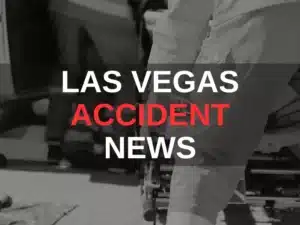In the aftermath of a tragic loss, understanding the legal avenues available, and who can bring a wrongful death claim, is crucial. No amount of money can bring back a family member that was lost due to another’s actions. However, recovering compensation may provide some financial relief to the families left behind as they work through their grief and adjust to life without their loved one. In Nevada, specific guidelines dictate who has the standing to file a wrongful death claim.
What Is a Wrongful Death Claim?
A wrongful death claim is a legal action filed when a person’s demise is the result of another party’s negligence, recklessness, or intentional act. It seeks to hold the responsible party accountable for his or her actions, providing a measure of justice for the bereaved.
What Is the Difference Between a Wrongful Death Claim vs. a Survivorship Claim?
Distinguishing a wrongful death claim vs. survivorship action is crucial in pursuing the appropriate legal action.
A wrongful death claim seeks compensation for the losses endured by the surviving family members. For instance, this includes emotional distress, loss of companionship, and financial support that the decedent would have provided.
Conversely, a survivorship claim is distinct. It addresses the pain and suffering experienced by the decedent prior to his or her passing. Essentially, it allows the estate of the decedent to seek damages that the decedent, had he or she survived, would have been entitled to recover.
Who Can Bring a Wrongful Death Claim in Nevada?
Nevada law is specific in determining who has the standing to initiate a wrongful death claim. It primarily falls to immediate family members, namely the surviving spouse or domestic partner and children, to file a claim. Their pain, loss, and suffering entitle them to seek reparation for the untimely passing of their loved one.
Additionally, parents of a deceased child may file a wrongful death claim. This recognizes the profound emotional and psychological impact such a loss can have on parents, irrespective of the age of the child.
What Other Parties Can File?
While immediate family members hold the primary standing to file a wrongful death claim in Nevada, there are circumstances where other parties may have valid claims. It’s important to recognize the rights of other potential parties who may be eligible for compensation in the claim. A wrongful death lawyer can help outline who may have a valid claim in your wrongful death case.
Siblings of the Decedent
While not initially included in the primary category of eligible parties, siblings of the decedent do have the potential to file a wrongful death claim under specific circumstances. If the decedent had no surviving spouse, children, or parents, and his or her siblings were financially dependent on him or her, they may be entitled to seek damages. This recognizes the significant role that siblings can play in each other’s lives, especially when there is a clear financial interdependence.
Financial Dependents of the Decedent
In some cases, individuals who were not immediate family members may have been financially dependent on the decedent. For example, this could include stepchildren, or other individuals who relied on the decedent for financial support.
Proving financial dependency is a critical aspect of establishing eligibility for filing a wrongful death claim. However, establishing financial dependency can be a complex legal matter. This necessitates a comprehensive evaluation of the nature and extent of the financial reliance. Evidence such as shared living expenses, joint financial accounts, or other forms of tangible support become pivotal in demonstrating this dependency.
Exceptions and Special Circumstances
In the realm of wrongful death suits in Nevada, there are unique situations that necessitate a closer examination. Understanding these exceptions is crucial for those seeking legal recourse in the wake of a tragic loss.
Absence of Eligible Parties
In some cases, there may be a scenario where there are no immediate family members, siblings, or financial dependents who are eligible to file a wrongful death claim. This can arise in situations where the decedent had no close relatives or was estranged from his or her family.
In such cases, it becomes imperative to consider alternative avenues for seeking justice. A wrongful death lawyer may help guide you understand the laws as they apply to your situation, as well as aid with exploring potential options for pursuing a claim.
Claims Involving Unborn Children
A particularly sensitive area of wrongful death claims pertains to cases involving unborn children. Nevada law recognizes the rights of unborn children in wrongful death actions by using the viability standard. If an unborn child loses his or her life due to the negligence or intentional actions of another party, a wrongful death claim can be filed. These cases only apply when the fetus has developed to the point of survivability outside the womb.
This legal provision acknowledges the impact such a loss can have on expectant parents and their families. It provides a means to seek redress for the emotional and psychological trauma they endure.
Pursuing a Wrongful Death Claim
When faced with the heart-wrenching reality of a wrongful death, taking legal action can be a crucial step towards finding closure and seeking justice.
To initiate a wrongful death claim, the first step is to consult with an attorney. He or she will be your advocate through the process, working to ensure that your rights are upheld.
The attorney will begin by conducting a thorough investigation into the circumstances of the untimely passing. To this end, he or she may gather evidence, interview witnesses, and consult experts if necessary to build a compelling case.
Next, your attorney will assess the damages that may be eligible for the surviving family members. For instance, this includes both economic losses, such as medical expenses and lost wages, and non-economic losses, such as pain and suffering.
Following the assessment, a formal complaint will be filed with the appropriate court. This document outlines the allegations against the responsible party and the compensation sought. The defendant will then have the opportunity to respond.
As the case progresses, there may be negotiations between the parties in an attempt to reach a settlement. Your attorney will explain how Nevada wrongful death settlements work, and help ensure that any proposed agreement adequately addresses the losses suffered.
If a settlement is not reached, the case will proceed to trial. During the trial, both parties will present their arguments, witnesses, and evidence. The judge or jury will then make a determination on the liability of the defendant and the appropriate damages.
Nevada operates under a modified comparative negligence system. Therefore, even if the decedent was partially at fault for the incident, it does not necessarily bar the recovery of damages. However, any damages awarded will be reduced proportionally to the degree of fault attributed to the decedent.
When to File a Wrongful Death Lawsuit
Determining the appropriate timing for filing a wrongful death lawsuit is crucial in ensuring that your claim is pursued within the statute of limitations. The Nevada wrongful death claim statute of limitations is typically two years from the date of the decedent’s passing.
However, there are exceptions to this rule. For instance, if the death resulted from medical malpractice, the statute of limitations may be extended. It’s essential to consult with an attorney promptly after the incident to ensure that you adhere to the legal timelines.
Additionally, certain circumstances may necessitate immediate action. For instance, if there is a risk of lost evidence or witnesses becoming unavailable, filing a lawsuit promptly becomes imperative. Your attorney will assess the specifics of your case and advise on the optimal timing for initiating the claim.
What Damages Can You Recover in a Nevada Wrongful Death Claim?
In a Nevada wrongful death claim, there are various types of damages that may be pursued to provide compensation for the losses endured by the surviving family members. These damages can be broadly categorized into economic and non-economic losses.
Economic Damages
Medical Expenses: This includes any medical bills and related expenses incurred in an attempt to save the life of the decedent.
Funeral and Burial Costs: These expenses are often a significant financial burden for the surviving family members.
Loss of Financial Support: This encompasses the projected financial contributions that the decedent would have made to the family over his or her lifetime.
Non-Economic Damages
Pain and Suffering: This accounts for the emotional distress, grief, and mental anguish experienced by the surviving family members.
Loss of Companionship and Consortium: This recognizes the intangible losses of the companionship, guidance, and support that the decedent would have provided.
Loss of Enjoyment of Life: This pertains to the diminished quality of life experienced by the surviving family members due to the absence of their loved one.
Navigating a wrongful death claim in Nevada demands a delicate balance. Understanding who can bring a wrongful death claim, the exceptional circumstances, and the damages may be essential for your case.





